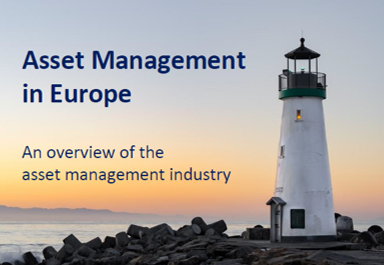Investors would benefit from an EU legal framework with due diligence guidelines and reporting requirements for companies in the real economy. This framework should be consistent with the reporting requirements in the revised NFRD and the disclosures in the Sustainability-Related Disclosures regulation (SFDR). At the same time, any framework for supply chain due diligence should not impose a competitive disadvantage for EU companies.
Sustainable Finance
The asset management industry plays a key role in meeting the objectives of the European Green Deal to make the EU’s economy sustainable. Our members integrate ESG considerations across their risk management processes and investment decisions. They develop sustainable investment products and foster transparency to fight greenwashing. This increases choice, trust and, in turn, retail investors’ participation. Overall, such efforts mobilise capital towards a fair and just transition to a climate-neutral economy by 2050.
EFAMA actively contributes to the development and implementation of EU’s sustainable finance initiatives. Among them are a comprehensive transparency framework for financial market participants, standards and labels for green financial products, classification of green economic activities and policies enhancing corporate sustainability reporting.
EFAMA response to EC consultation on Sustainable Corporate Governance
Priorities for the investment management industry - EFAMA letter to Portuguese Presidency of the EU
The European investment management industry is helping savers achieve their financial goals and build up retirement savings. Investment management is a vital part of the European economy, providing funding for companies and infrastructure projects and contributing to economic growth and job creation across all Member States.
EFAMA feedback on draft Delegated Act of Taxonomy Regulation for climate change mitigation and adaptation
As the voice of European asset management industry, EFAMA strongly welcomes the development of
the EU Taxonomy and its technical screening criteria. We see the Taxonomy as a critical tool to
unleashing the potential of sustainable finance in Europe by assisting issuers, project promoters,
companies, investors, and other financial market participants in identifying truly sustainable economic
activities. We wish to put forward recommendations that aim to improve the usability and integrity of this
framework.
IOSCO´s consultation on ESG ratings and data products providers
Given the increasingly important role ESG ratings and data products providers play in investment processes, EFAMA welcomes the increased attention of regulators to this issue. In light of the growing regulatory scrutiny on the ESG characteristics of potential investments, improving the usability and reliability of the ESG ratings and data products is a key priority for the European asset management industry.
EU needs a usable, investor-centric and globally relevant social taxonomy
EFAMA responded to a public consultation of the Platform on Sustainable Finance on a social taxonomy.
Brown taxonomy: An opportunity to transition away from significantly harmful activities
EFAMA responded to a public consultation of the Platform on Sustainable Finance on taxonomy extension options linked to environmental objectives.
3 questions to Thierry Bogaty on the EU Ecolabel for retail financial products
Q #1 Can the EU Ecolabel for retail financial products help channel individual investors’ savings into environmentally sustainable projects?
A well-designed EU Ecolabel has the potential to provide clear guidance on the financial products retail investors can invest in if they wish to support environmentally sustainable projects and activities - in line with the EU Taxonomy Regulation. The European Commission wants to create a trusted and verified label for retail investors, who would benefit from better comparability of financial products.
Asset Management Report 2019
The EFAMA Asset Management in Europe report aims at providing facts and figures to gain a better understanding of the role of the European asset management industry. It takes a different approach from that of the other EFAMA research reports, on two grounds. Firstly, this report does not focus exclusively on investment funds, but it also analyses the assets that are managed by asset managers under the form of discretionary mandates. Secondly, the report focuses on the countries where the investment fund assets are managed rather than on the countries in which the funds are domiciled.


































